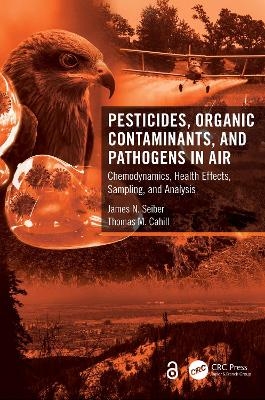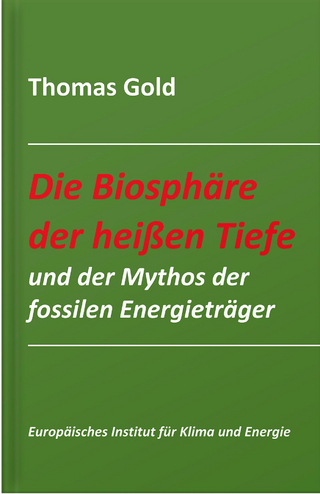
Pesticides, Organic Contaminants, and Pathogens in Air
CRC Press (Verlag)
978-0-367-48567-2 (ISBN)
The air is an important but largely unrecognized source of contaminant fate in the environment, including transport of pesticides and contaminants to nontarget areas and exposures for people and wildlife. This book summarizes and places in perspective the potential transport, transformation, and health implications of pesticides and contaminants in air, including the air we breathe. It delves into the hypothesis that the atmosphere is the most significant environmental compartment affecting the overall transport and fate of many classes of environmental contaminants.
The authors draw parallels between sampling, analysis, and impact of airborne toxics and particulate matter with the COVID-19 pandemic. Airborne viruses and fine particulate matter, which are of similar size, have remarkable parallels in how they are transmitted and accumulated in the respiratory tract.
FEATURES
Assesses exposures of people and wildlife to airborne chemicals
Includes case study applications, with relevant data summarized for pesticides and contaminants in air
Discusses approaches to modeling pesticides’ and contaminants’ dispersion and fate in air
Includes an assessment of the physicochemical properties of pesticides and contaminants that influence sampling and atmospheric mobility and fate
The authors are global experts in air contaminant research, and this book is well organized and helpful for people interested in regulatory, health, and other topics related to pesticides and contaminants in air.
James N. Seiber is a Professor Emeritus at the University of California, Davis.
Thomas M. Cahill is an Associate Professor in the School of Mathematical and Natural Sciences at Arizona State University.
James N. Seiber is Professor Emeritus at the University of California, Davis; and Thomas M. Cahill is Associate Professor at Arizona State University, Phoenix.
1. Introduction: A Summary with New Perspectives 2. Historical and Current Uses of Pesticides 3. Physical and Chemical Properties of Pesticides and Other Contaminants: Volatilization, Adsorption, Environmental Distribution, and Reactivity 4. Pesticide Exposure and Impact on Humans and Ecosystems 5. Environmental Fate Models, with Emphasis on Those Applicable to Air 6. Sampling and Analysis 7. Pesticides in Fog 8. Fumigants 9. Trifluoroacetic Acid from CFC Replacements: An Atmospheric Toxicant Becomes a Terrestrial Problem 10. Drift 11. Viruses, Pathogens, and Other Contaminants 12. Biopesticides and the Toolbox Approach to Pest Management 13. Conclusions
| Erscheinungsdatum | 11.10.2021 |
|---|---|
| Zusatzinfo | 37 Tables, black and white; 52 Line drawings, black and white; 21 Halftones, black and white; 73 Illustrations, black and white |
| Verlagsort | London |
| Sprache | englisch |
| Maße | 156 x 234 mm |
| Gewicht | 453 g |
| Themenwelt | Naturwissenschaften ► Biologie ► Biochemie |
| Naturwissenschaften ► Chemie ► Technische Chemie | |
| Technik ► Bauwesen | |
| Technik ► Umwelttechnik / Biotechnologie | |
| ISBN-10 | 0-367-48567-2 / 0367485672 |
| ISBN-13 | 978-0-367-48567-2 / 9780367485672 |
| Zustand | Neuware |
| Informationen gemäß Produktsicherheitsverordnung (GPSR) | |
| Haben Sie eine Frage zum Produkt? |
aus dem Bereich


